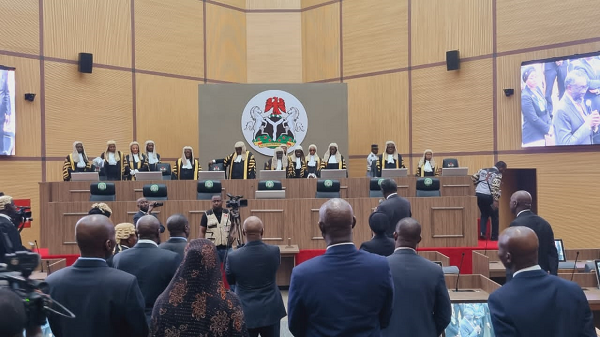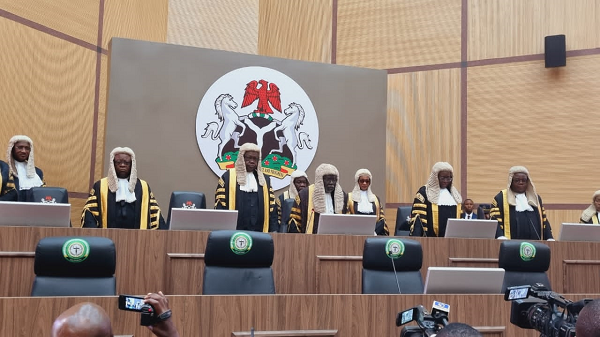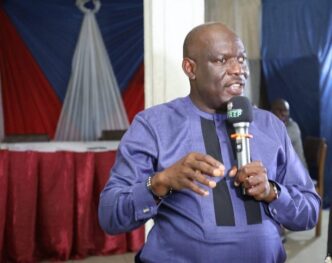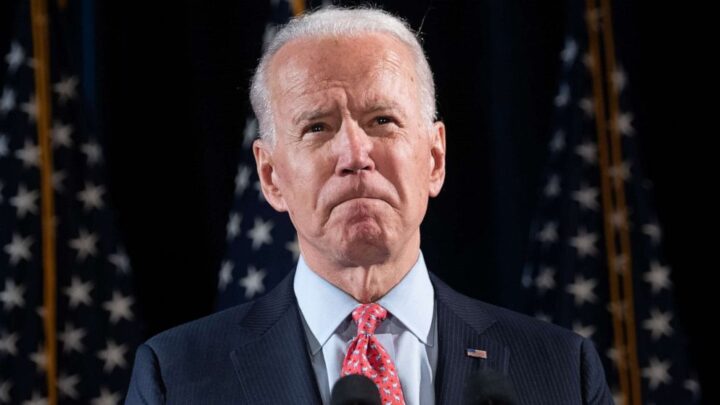For over 72 hours, the landmark supreme court judgement granting financial autonomy to Nigeria’s 774 LGAs has been the nation’s most discussed topic.
On Thursday, the apex court granted the federal government’s prayers seeking direct disbursement of funds from the federation account to the LGA, bypassing the state government.
The court criticised the practice of states creating and controlling caretaker committees, reiterating that local government councils should be democratically elected as stipulated by the constitution.
Six out of a seven-member panel of the apex court also ordered the federal government to withhold allocations of LGAs governed by unelected officials appointed by governors.
Advertisement
WHO WILL FUND THE LCDAs IN LAGOS?

Local Council Development Areas (LCDAs) are subdivisions of local government areas.
Although a few states have LCDAs, Lagos, which was the first to create such in 2002, is most prominent with 37 LCDAs.
Advertisement
Olorunnimbe Mamora, then speaker of the Lagos state house of assembly, said LCDAs would bring governance and development closer to the grassroots.
Its legitimacy became a highly contentious issue and former President Olusegun Obasanjo stopped the release of federal allocations meant for the LGAs to the state.
Lagos, under Bola Tinubu, then governor of the state and now president of the country, challenged the federal government at the supreme court and got the apex court to rule in its favour on December 10, 2004.
Muhammadu Uwais, who delivered the lead judgement, held that “the creation of new local government areas or councils is supported by the provisions of the Constitution” as provided for under Section 8(5).
Advertisement
“I am satisfied that the house of assembly of Lagos state has the right to pass the creation of Local Government Areas Law No. 5 of 2002 and to amend it by passing the Creation of Local Government Areas (Amendment) Law, 2004,” Uwais said.
However, Uwais added a caveat that for the new LCDAs to be recognised and given the same status as well as receive allocations from the federation account, the national assembly would need to amend Section 3 subsection (6) and Part I of the First Schedule to the Constitution.
Consequently, the supreme court ordered the federal government to pay all outstanding statutory allocation due and payable to the Lagos state government “in so far as it relates to the 20 Local Government Councils for the time being recognised by section 3 subsection (6) and Part I of the First Schedule to the Constitution”
So far, the state has been running the LCDAs with its internally generated revenues and part of the funds from the federal allocation meant for the other 20 LGAs.
Advertisement
But with the recent ruling of the supreme court, funds meant for the constitutionally recognised 20 LGAs in Lagos will no longer be sent to the state joint local government account and consequently, will be out of the reach of the state government.
Lawal Pedro, attorney-general of Lagos, did not respond to an inquiry sent by TheCable on how LCDAs in the state would be funded going forward.
Advertisement
Already, the state house of assembly has summoned Pedro to review the impact of the judgement on the state.
WHAT HAPPENS TO THE STATE JOINT LGA ACCOUNT?
Advertisement

Part of the arguments canvassed by some of the states was that the federal government had no constitutional backing to pay allocations directly to the LGAs; rather, the money must be paid into the state joint local government account as stipulated in Section 162 (6) of the Constitution.
However, Emmanuel Ajim, who read the lead judgement, held that the constitution cannot be strictly interpreted like an Act of the national assembly and that it must be interpreted to have meaning according to the “spirit and intention” of the constitution.
Advertisement
The court held that the word “shall” used in Section 162 (5)(6) also implies “permissiveness” when properly interpreted.
“I hold that the state’s retention and use of money from the federation account paid to it for the benefit of the LGC is unconstitutional,” Agim said.
He said the job of the states and the joint account “is to simply convey the money to the LGAs”.
“The state’s refusal to do so has gone on for over two decades defeating the intention of the constitution,” he said.
“Since paying them through states has not worked, the LGC allocation from the federation account should henceforth be paid directly to the LG.”
Although, the state joint local government account remains an account as stipulated in Section 162 (6) of the Constitution but will no longer house local government funds.
The states also do not receive their allocations in that account.
The national assembly is at liberty to remove or find a use for it during a constitutional amendment.
WILL ALL 774 LGA COUNCILS ATTEND FAAC MEETINGS?
While reading the judgement, Agim noted that one of the reasons for the creation of the state joint local government account was to avoid “the 774 local councils driving monthly to the FCT to collect the money standing in their credit in the federation account”.
However, the court did not state whether or not LGA representatives would now need to attend FAAC meetings where allocations are made.
Giving his opinion on the issue, Eze Onyekpere, constitutional lawyer and lead director of the Centre for Social Justice, said LGAs should ideally be represented since their money is not going to be transferred through the states.
“The implication is that they may have to be represented at the FAAC meetings,” he said.
“Being represented does not mean that all the 774 of them would have to be there. They could seek out a modality of having one or two representatives from each state to make sure that their interests are very well represented.
“These are just the technical minute details of implementing the supreme court decision which will be taken by respective parties at the appropriate time.”
LGA REPRESENTATION AT NSIA
Founded in 2011, the Nigeria Sovereign Investment Authority (NSIA) is an establishment which manages the Nigeria sovereign wealth fund into which the surplus income produced from the country’s excess oil reserves is deposited.
Membership of the NSIA is listed under Section 8 of the NSIA Act including the president, all state governors, the attorney-general of the federation (AGF) etc. But the Act does not include representatives of the LGs.
According to Onyepere, the states can continue to represent the interest of the LGAs, but nothing stops the LGAs from asking for a seat at the table.
“But if they don’t want to, the states can continue to represent them at the table since it is not about sharing anything. It is just a general interest investment arm,” he said.
However, should the LGAs insist on representation at the Authority, the NSIA Act would have to be amended by the national assembly to accommodate the LGAs.
HAVE LGAs ATTAINED FULL AUTONOMY?
The supreme court, in its judgment, said the local government shall be by democratically elected council. The apex court stressed that governors do not have the power to substitute caretaker committees for democratically elected LG council.
Reacting to the judgement, Lateef Fagbemi, attorney-general of the federation (AGF), said the supreme court has “emancipated the local government from the shackles of the past”.
However, there is the argument that governors may still exert control of the councils since they are responsible for setting up the body that would conduct LGA elections.
“I am also afraid since these governors are the ones that will appoint Resident Electoral Commissioners who will supervise the LGA elections, where is the autonomy? He who pays the piper dictates the tune,” Promise Uzoma, former vice-chairperson of Bende LGA, Abia state, said.
“Unless these elections are conducted by INEC, we may not have true autonomy of the local government.”
Onyekpere, in his opinion, noted that what the supreme court has done is just one arm of the reform.
“The second arm which is the LG election just like the federal elections has not been reformed. The governors will still have a say in who emerges just like the current practice,” Onyekpere said.
“I heard some people recommending that state electoral commissions should be abolished and in its place, INEC should organise. But whoever says that just presumes that INEC is better. But has INEC earned the trust? INEC has no credibility and states have no credibility.”
As more events unfold on the supreme court judgement and its execution, one thing seems to be prominent in the minds of the citizens. Let there be grassroots development.
Add a comment








